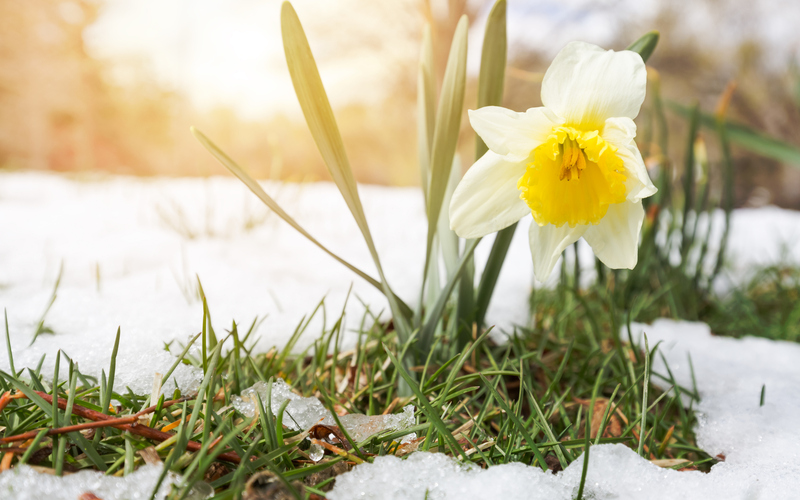A Message That Matters
Sign up for a six month free
trial of The Stand Magazine!
(Editor's Note: This blog was first posted on The Stand in July 2021)
Today, April 28, 2022, is America’s annual Holocaust Remembrance Day. In 1979, today and tomorrow, April 28-29, were officially set aside as The Days of Remembrance of the Victims of the Holocaust. Congress chose these specific days in honor of the American liberation of the infamous Dachau concentration camp in 1945.
We share the story of Rose and Odette Aboulafia in honor of the millions of Jewish men, women, and children murdered during the Holocaust.
May we never forget the tragic truth of the Holocaust. It is only in remembering that we can ensure that such an atrocity never happens again (Joy Lucius, April 28, 2022).
- - -
The recent release of Priceless Pennies: Rose and Odette – Unknown Children of the Holocaust was a bittersweet moment. On one hand, I felt relief for an assignment finally completed. Yet I was reluctant to let go of the treasure with which I had been entrusted.
Some people might say, “It’s just a book.”
They would be correct. But for me, the Holocaust story of the Aboulafia family became much more than a novel.
Hearing the call
Rose and Odette led me on a miraculous journey that started during a routine interview with Diane McNeil of the Unknown Child Holocaust Foundation. After that initial interview on June 27, 2019, Diane invited me to tour the Unknown Child Memorial in Hernando, Mississippi.
I conducted another interview that day with a local children’s author of historical fiction, and I told her, “You should write a book about Unknown Child and the Holocaust.”
I received no response from this writer, but I did hear that quiet, still Voice speak to me: “Maybe you should write this story, Joy.”
I laughed nervously and immediately began to concoct a mental list of excuses:
- I am not a good enough writer to write that kind of story.
- There are already so many great books about the Holocaust.
- I am a Christian, not a Jew. How can I write such a sacred story?
- I do not have the time or background to initiate this type of research project.
- What aspect could I possibly write about that has not already been covered?
- Again, I am not a good enough writer.
But His voice can be so persistent, and I quickly realized I was being offered an important task. But why this story at this particular time in history?
I did not really understand, so I did the only thing I knew to do. I began to research children of the Holocaust, and one of the first images that popped up on my computer was an old photograph of two little girls named Rose and Odette Aboulafia. They were beautiful, dark-haired, dark-eyed French sisters, both murdered at Auschwitz in 1944.
After hours of searching, I kept coming back to the Aboulafia sisters. For some reason, their picture reminded me of my only sister Lisa. So I printed off that photograph and stuffed it away in my purse, but it was not as easy to dismiss the words that God had spoken to my heart.
In fact, during our family vacation a week later, I shared Rose and Odette’s picture with my 14-year-old granddaughter Emma. We talked about all Emma has learned of World War II and the Holocaust. We discussed Holocaust novels she and her classmates have read, movies she has watched, and other novels I had previously shared in my own classroom during my 23 years of teaching.
I told Emma I had heard God speak to my heart a charge to write about Rose and Odette. But I was honest with her, and we discussed all my excuses. And when I exhausted every single excuse on my list, Emma paused and grew very quiet.
She finally said, “But, Yaya, if God told you to write this story, you have to do it.”
I sighed and crammed Rose and Odette’s crumpled picture back in my purse, along with Emma’s words of admonition.
Accepting the task
Two weeks later, my sister Lisa and I toured the Unknown Child Memorial exhibit. After the emotional tour, our guides realized they had forgotten to turn on the somber soundtrack – a continuous recitation of names of children murdered in the Holocaust. So one of our guides brought us a recorder to listen to a sample of the names, but the recorder still would not work.
Just when he was about to apologize and give up, the soundtrack began: Rose Aboulafia, 1932 to 1944; Odette Aboulafia, 1936 to 1944.
I screamed, “Stop! Stop!” I fumbled to retrieve that one photograph from my purse, the picture of Rose and Odette.
Think about the statistical improbability of that moment. Of 1.5 million Holocaust children, the only two names we heard that day were the names of the same sisters in my printed photograph.
In that moment, I began a two-year journey of researching and writing about the Aboulafia sisters, a heart-wrenching journey that led to the discovery of their two older brothers, David and Leon, both Holocaust survivors.
Neither brother had ever been documented on an online Holocaust survivor list though. Alone after the war, perhaps the teenagers were too frightened to seek help from a government that had not protected them or their family when they needed it most.
Or perhaps their story was just too painful to openly share with others. In fact, one brother legally changed his surname after the war because he said, “The only good Jew is a hidden Jew.”
Whatever the case, the memory of David and Leon Aboulafia’s young sisters, Rose and Odette, was eventually relegated to a foyer table and a small framed photograph, the same photograph I had copied and stuffed into my purse on June 27.
Sharing the message
How amazing! That lone photograph, taken almost 80 years ago, was the starting point of a journey that led to the printed story of two young French girls who were heinously murdered at Auschwitz simply for being Jews.
Thankfully, two generations of family members now know more details about their aunts than ever before; so do we.
And now that we know, we are responsible. We must make sure that Rose, Odette, and the other 1.5 million Holocaust children are never forgotten.
“But, why?” people ask me. “What makes their story, or any Holocaust story, so important? Isn’t it better to just forget and move on?”
I actually have two answers for that question, one strictly scriptural and the other very personal.
First of all, in Genesis 12:3, God assured the patriarch of Israel (later renamed Abraham), “I will bless them that bless thee, and curse him that curseth thee: and in thee shall all families of the earth be blessed.”
Beyond the divine blessing of this covenant, my writing journey taught me that behind every evil ideology, including the fascist beliefs of Nazism, there is an agenda. And if modern Americans, especially Christians, are not careful, the next catastrophic causalities of unchecked, progressive ideology could very well be members of our own family.
If those reasons do not suffice, then all I can say is that two little French Jewish girls named Rose and Odette Aboulafia were so important to God that He miraculously introduced them to a retired Mississippi public school teacher, a grandmother who lived a world and a lifetime away.
Rose and Odette mattered to God, they matter to me, and I pray they will matter to you.
________________________________________________________________________
To learn about other potentially harmful ideologies threatening the biblical truths of faith, family, and freedom, AFA Cultural Institute offers a DVD/booklet combo of The Progressive Threat to the American Republic with Ed Vitagliano, available for purchase at resources.afa.net.
Priceless Pennies: Rose and Odette – Unknown Children of the Holocaust can also be purchased at resources.afa.net or by calling 1-877-927-4917.

Sign up for a free six-month trial of
The Stand Magazine!
Sign up for free to receive notable blogs delivered to your email weekly.



















